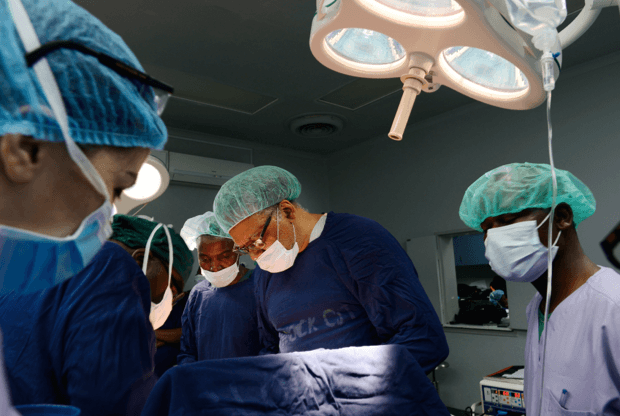Regional deficits in surgical capacity are common around the world. Diseases that occur in these predominantly lower- and middle-income regions are often treatable with surgery, but traditional mentor-apprentice methods of surgical training have failed to provide an adequate number of trained surgeons, largely due to the time investment required. The VRSS technology is designed to reduce the time required to train surgeons, promoting an increase in the total surgical capacity of the region.
Initial research has focused on women’s reproductive health procedures.
Cervical Cancer
Cervical cancer is one of the most common cancer-related causes of death in lower- and middle-income regions. However, due to surgical capacity deficits, cervical cancer patients in these regions typically spend excessively long periods on surgical waiting lists, during which time their cancers may progress or they may fail to return for follow-up.
Furthermore, as countries in the developing world implement and scale up cervical cancer screening programs, increasing numbers of women will be diagnosed with stages of cervical cancer that are possible to cure with surgery alone. This is why it is critical to find ways to more effectively and efficiently train surgeons to treat cervical cancer patients and prevent missed opportunities for cure.
Postpartum Hemorrhage
Postpartum hemorrhage (PPH) is the leading global cause of maternal mortality, causing roughly one in three maternal deaths worldwide, which are overwhelmingly concentrated in lower- and middle-income countries. The VRSS team hopes to leverage the virtual reality simulator in conjunction with other virtual training materials to increase PPH treatment capacity.
This project is funded with support from the Medical Research Council, UK and the Wellcome Trust.

